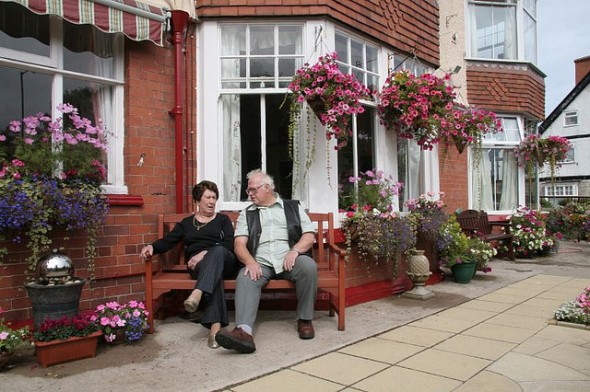Many of us have been taught to look at the purchase of a home as a good investment. When we purchase a home, we are investing in a neighborhood, a school system, and hopefully a safe community to raise our families and spend a large portion of our lives. Buying a home is also a major financial investment, and some of us may be banking on that financial investment when the time comes for retirement.
Check out our refinance calculator
In the past, home ownership always seemed like a sound way to store up equity when the time came for retirement, things have changed. Depending on your home equity is not always a solid plan when it comes to retirement. Here are some reasons as to why home equity may not be enough to rely on when the time comes to retire.
Related Article: How Prepared Are You For Retirement?
You Home May Depreciate in Value
The prevailing conventional wisdom used to be that home values would always rise. Obviously, the 2007-2008 financial and mortgage crisis has changed conventional wisdom. Now, we know mortgages are like any other investment, which means they can go up, but they can also decrease in value.
Home values can decline for a number of reasons including economic factors (like a market crash), a changing community, and more. The recent mortgage woes have shown us just how susceptible home equity is to depreciating due to circumstances outside of our personal control. It is important to be aware that home values do not always increase and relying too heavily on your equity for retirement purposes is not a safe bet.
Fees and Taxes Take their Toll
Selling a home comes with fees and taxes that can take a good portion of your stored up equity. The standard arrangement asks the seller to pay the realtor charge of 6% of the final sale. Furthermore, there is also the likelihood of a capital gains tax. Although $250,000 ($500,000 for couples) is not subject to capital gains tax, if your home does appreciate in value over time, you may find yourself having to pay this tax.
You Will Still Need a Place to Live
Remember, once you sell your home you will need to find another place to live. If you are planning to buy a smaller home to live in, you will have to contend with fees, taxes, and another mortgage, albeit presumably smaller than your previous mortgage. If you are planning on using the money from selling your home to pay for a nursing home, if you’re married, your spouse will still need a place to live. The point is it is important to decide whether selling your home is worth it, considering the fees and the continued need to have a place to live. It may be more advantageous to remain in your current home.
Related Article: The Hidden Costs of Downsizing Your Home
In the end, planning for retirement is an important part of your financial planning, and sometimes using home equity may be your best bet. However, it is vital not to be overly reliant on your home equity. Don’t look at the current value of your home and think that will be enough to fund your retirement years. The value of homes and properties change, commission and taxes take their toll, and the necessity to have a place to live will persist into your retirement. Make sure to take all of this into account when planning your golden years.
Related Article: How Much Should You Have in Your 401(k) to Retire?
Photo Credit: welsh boy
